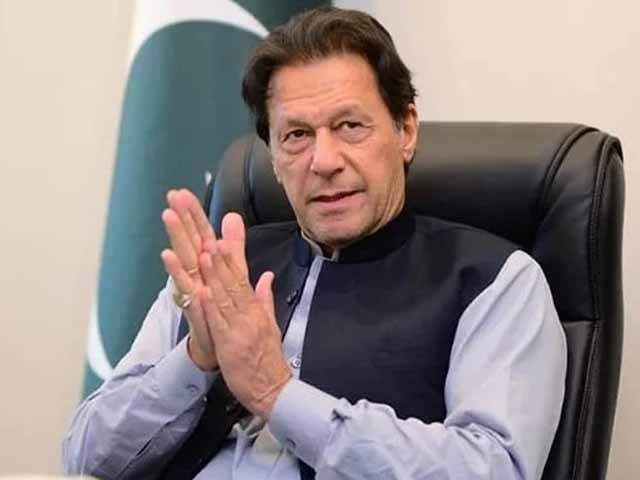In the ever-dynamic landscape of Pakistani politics, the ongoing stalemate between the Pakistan Tehreek-e-Insaf (PTI) party and the government has become a focal point of debate. With tensions mounting and dialogue yielding minimal progress, the root of this deadlock appears to be PTI’s inability to directly engage with its leader, Imran Khan, and a lack of clear, written demands presented to the government. This combination of miscommunication, organizational gaps, and political maneuvering has left many questioning the future of negotiations and the potential resolution of pressing national issues.
The Context of the Deadlock
The deadlock between PTI and the government has persisted for months, exacerbated by growing political unrest, economic challenges, and a polarized political climate. Both parties have accused each other of derailing talks, but insiders suggest that PTI’s internal struggles have significantly contributed to the stalemate.
At the heart of the issue is PTI’s inability to effectively communicate with its chairman, Imran Khan, who remains central to the party’s decision-making process. Since his removal from power in 2022, Khan has faced legal and political challenges, limiting his ability to interact directly with party members. This disconnect has hampered PTI’s ability to articulate a cohesive strategy, leaving the party in a reactive, rather than proactive, position.
Imran Khan: A Leader in Isolation
Imran Khan’s absence from direct negotiations has been a critical factor in the impasse. His ongoing legal battles and restricted movement have created a vacuum in PTI’s leadership, leading to a reliance on second-tier leadership to navigate complex negotiations. However, without Khan’s direct involvement, PTI has struggled to project a unified stance, weakening its position in talks with the government.
“Khan has always been the driving force behind PTI’s policy direction,” a political analyst observed. “His absence from the negotiation table has left the party without its most persuasive and strategic voice.”
This isolation has also fueled speculation about internal divisions within PTI. While some members advocate for a conciliatory approach, others push for a more confrontational strategy, further complicating efforts to reach a consensus.
The Absence of Written Demands
Adding to PTI’s challenges is the party’s failure to present written demands to the government—a standard practice in negotiations aimed at ensuring clarity and accountability. The lack of a documented list of grievances and proposals has not only frustrated government officials but has also raised questions about PTI’s preparedness and seriousness in resolving the deadlock.
Government representatives have repeatedly emphasized the importance of formalizing demands to facilitate constructive dialogue. “Without written demands, it’s impossible to address the issues PTI claims are central to their agenda,” a government spokesperson remarked.
The absence of written documentation has also allowed room for misinterpretation and political posturing, with both sides accusing each other of insincerity. For PTI, this misstep risks alienating supporters who expect the party to take a clear and assertive stance.
Political Consequences of the Stalemate
The ongoing impasse has significant implications for Pakistan’s political and economic stability. With key reforms and decisions on hold, the nation faces a growing sense of uncertainty. International observers and domestic stakeholders alike have urged both sides to prioritize dialogue over division, warning that prolonged deadlock could have far-reaching consequences.
For PTI, the inability to break the stalemate risks eroding its support base. Imran Khan’s charismatic leadership has long been the party’s cornerstone, but the lack of visible progress in negotiations could undermine the perception of PTI as a capable and effective political force.
On the government’s side, the stalemate has provided fodder for criticism, with opponents accusing it of failing to engage meaningfully with the opposition. The situation highlights the broader challenges of governing in a deeply polarized environment, where political rivalries often take precedence over national interests.
Pathways to Resolution
Despite the challenges, there remain avenues for breaking the deadlock. For PTI, addressing internal communication gaps and presenting a clear, documented set of demands could pave the way for more productive negotiations. Re-establishing direct communication with Imran Khan, even if through indirect channels, would also strengthen the party’s position.
The government, on the other hand, must demonstrate a genuine willingness to engage with PTI, ensuring that talks are conducted in good faith and with a focus on mutual compromise. Confidence-building measures, such as agreeing to neutral mediators or addressing preliminary concerns raised by PTI, could help rebuild trust and facilitate dialogue.
A Nation in Need of Unity
At its core, the deadlock between PTI and the government reflects broader challenges facing Pakistan’s political system—namely, the inability of rival factions to work together in the national interest. With the nation grappling with economic crises, security threats, and social challenges, political unity is more critical than ever.
Both PTI and the government bear a shared responsibility to prioritize dialogue over division, recognizing that the stakes extend far beyond their respective political agendas. Resolving this impasse requires not just strategic negotiations but also a willingness to rise above personal and partisan rivalries.
As Pakistan watches and waits, the question remains: Will its leaders rise to the occasion, or will the deadlock continue to hinder progress at a time when unity is most needed? For now, the answer lies in the ability of both PTI and the government to bridge their divides and focus on the greater good.

